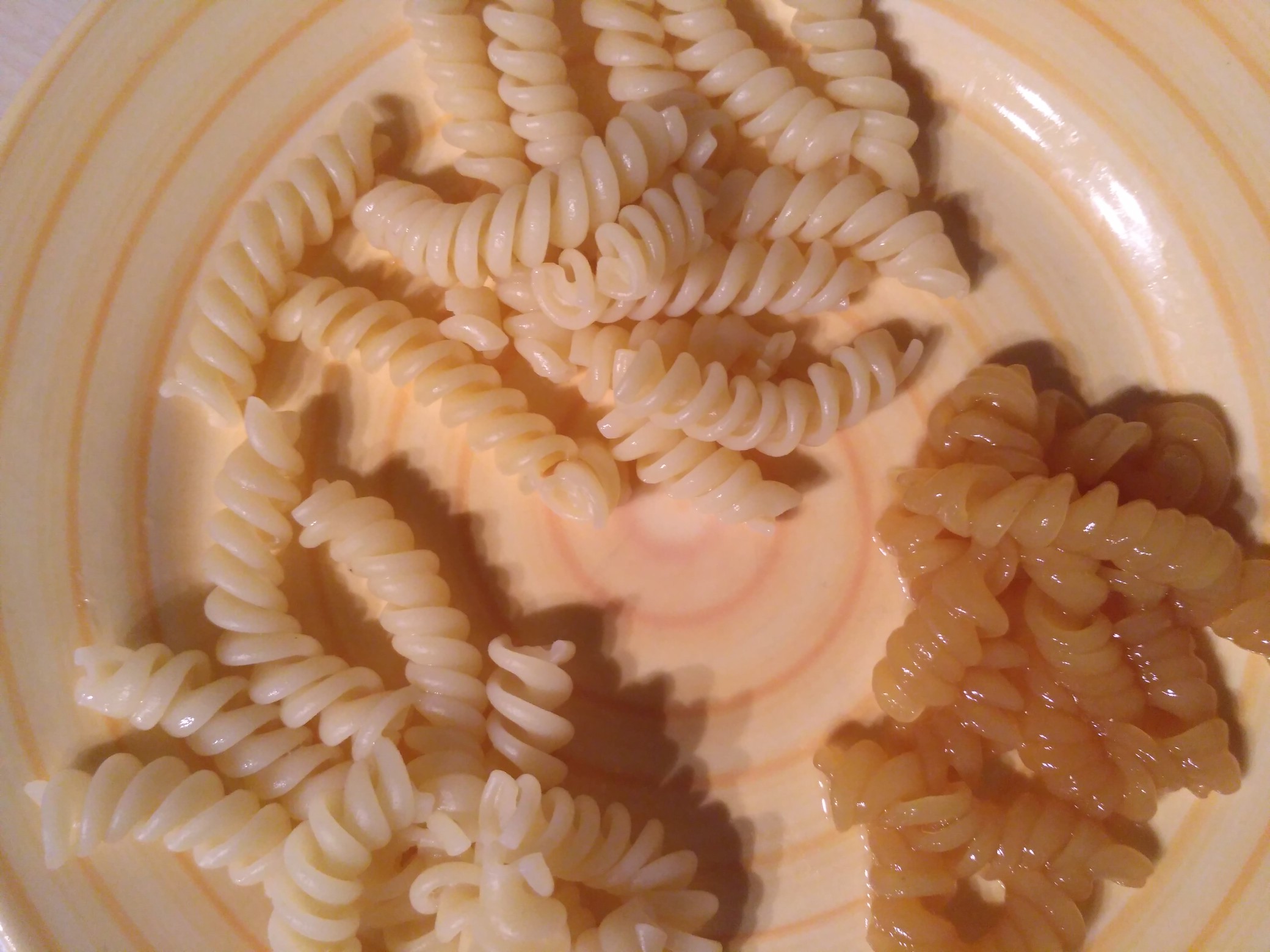You can not prevent your pasta from overcooking but you can make it more mushy (and unpalatable)
The effect of acidity is very noticeable with potatoes, adding a shot of vinegar will let you cook almost paper-thin slices without them falling apart, while adding soda does the opposite.
This article goes in detail and has close-up images of the results
I expected it to be the same for pasta, and since I had a handful of leftover Barilla n.34 occupying space in my cupboard I simply cooked up two batches.
- Both were cooked in boiling water for the recommended 6 minutes in a glass of water without salt.
- To the first batch I added a tablespoon of baking powder (I didnt have pure soda)
- To the second I added a shot of 40% vinegar
Rinsing them off with clean water mostly got rid of the acidic/alkaline taste (except some droplets that were remaining in deep crevices. I guess using something less squiggly, like spaghetti one could rince off the vinegar completely) I was checking the taste and consistency throughout writing this post. Ignoring the remains of vinegar/soda, there were no percievable difference between those two.
The baking powder, in addition to Sodium bicarbonate, has an acidic counterpart Disodium pyrophosphate which means that even with a full tablespoon of it, the pH didnt change much.
So I brought out the big guns and boiled some of the cooked pasta with a teaspoon of drain cleaner for one more minute. They attained a darker colour and the water also turned yellowish. I did not taste-test those, but they were, and 20 minutes later still are, very glossy sticky and mushy.
I left them on the table overnight, and while the first two batches started drying out around the edges and became stiffer, the drain cleaner pasta is still soft, sticky and glossy.
This experiment could be improved by using spaghetti, since they are more uniform, and measure their curvature radius and mass as an indicator of how al-dente the are and how much water they absorbed.
Top - Baking powder, Bottom right - Drain cleaner, Bottom left - Vinegar


